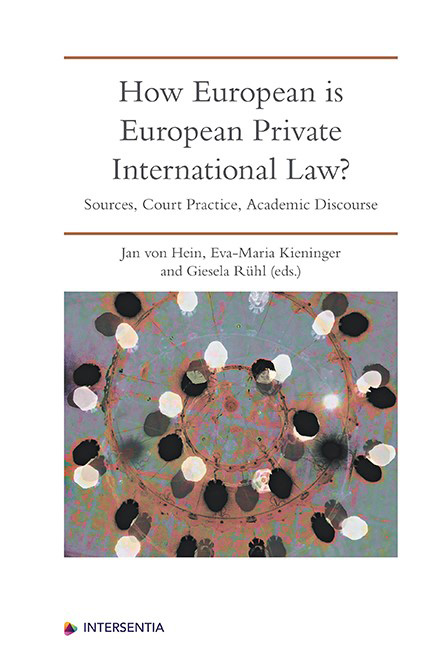Preface
Published online by Cambridge University Press: 22 December 2020
Summary
The question that forms the title of this book – ‘How European is European Private International Law?’ – may, at first impression, strike the reader who is unfamiliar with the subject as strange: isn't it already clear from the adjective ‘European’ associated with the noun ‘Private International Law’ that this legal field is precisely what it purports to be, i.e. ‘European’ in nature? In reality, creating a truly ‘European’ Private International Law is a more complicated endeavour, though. In fact, current Private International Law as it is applied by EU Member State courts is characterised by a multitude of legal sources, ranging from EU regulations to international conventions and domestic conflicts rules. Even where genuinely unionised conflicts rules do exist, the question arises as to whether these rules are actually applied in a uniform way because national procedural laws and domestic court systems diverge considerably. Last but not least, the Europeanisation of Private International Law poses intricate challenges for academic research and legal education, in particular with regard to domestic academic styles, traditions and career patterns, as well as the contents of the curricula taught at law faculties across Europe.
The contributions collected in this book address those issues from various angles. As editors, we wish to thank our authors for providing us with their insights and ideas.
Yet, there are more people to whom thanks are due. This publication grew out of a conference under the same title that was financed by the Deutsche Forschungsgemeinschaft (DFG) and held in March 2018 in the Harnack-House of the Max-Planck-Society (MPG) in Berlin, Germany. The editors wish to thank both the DFG for its generous support and the MPG for its hospitality. After Eva-Maria Kieninger had made a proposal for such an event, which was then discussed and fine-tuned with Giesela Rühl and Jan von Hein, the organisation of this conference was mainly carried out at Giesela Rühl's chair in Jena. The editors wish to thank Regina Franzl, Georg Höxter, Nicolas Koerrenz, and Corinna Hofmann from the University of Jena for their support in organising the conference. During the conference, further help was provided by our assistants Berthold Blatecki-Burgert, Pauline Köstner, and Alexander Holzer (all from Jena), Anna Bizer, Sinah Mosbach, and Lea-Ariane Rudolph (all from Freiburg), and Marlene Kellendorfer (Würzburg). In addition, thanks are due to Jan Varenkamp (TU Ilmenau) for creating the conference website.
- Type
- Chapter
- Information
- How European is European Private International LawSources, Court Practice, Academic Discourse, pp. v - viPublisher: IntersentiaPrint publication year: 2019

